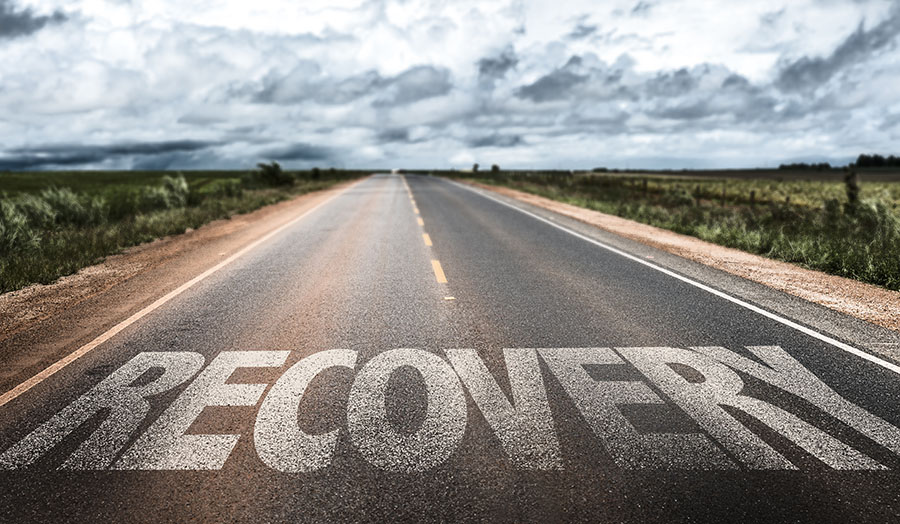Drug detox is an essential element of addiction treatment. It serves as the initial phase in liberating oneself from substance dependency.
The recovery journey may feel daunting at times. However, gaining insight into the detox process can be a critical step toward progress.
If you’re considering detox for yourself or supporting a friend or family member, this guide is designed to help navigate the challenge of addiction recovery. From the types of substances that require detoxification to the significance of professional supervision, we aim to provide you with the necessary information to make informed decisions during this crucial phase of the recovery journey.
What is Drug Detox?
The simplest way to define drug detox is as the necessary first step in the larger addiction recovery process. Let’s break that definition down a little more.
Why Drug Detox is a Necessary Step in Recovery
Drug detox is a necessary step in recovery because it focuses on safely managing withdrawal symptoms.
When someone is dependent on a substance, ending use can lead to a variety of uncomfortable and unpleasant effects. For certain substances, like alcohol and benzodiazepines, withdrawal can be a dangerous and even life-threatening experience. Fear of withdrawal can be a major obstacle for people who otherwise want to stop using.
Medically supervised drug detox helps to manage those symptoms. This approach is designed to protect people going through withdrawals. It makes the detox process more comfortable. A safe, supervised environment that prevents access to substances also protects people and encourages their progress toward recovery.
We’ll review the specific services offered as part of supervised drug detox later on in this article.
Why Drug Detox is the First Step in Recovery
Detoxing from drugs is the first step in the recovery process for a few key reasons.
People have to stop using substances to begin their journey toward sobriety. It’s a simple but vital truth in the long-term recovery process.
Medically supervised detox helps to address both physical and mental aspects of addiction. A thorough detox process includes a psychiatric evaluation. That sets the stage for a more holistic recovery.
Identifying mental health concerns that can contribute to substance abuse leads to more effective treatment. An individualized treatment plan takes unique needs into account, putting people in a better position to continue their journey toward sobriety.
How Can Someone Tell if They Need Drug Detox?
The Mayo Clinic shares a list of several common symptoms of addiction. These include the need to use a substance regularly and experiencing withdrawal when they stop use. A compulsion to continue use, even when recognizing the problems it causes, is another example.
In the big picture, when substance use interferes with daily life and becomes the top priority over personal, work, and social obligations and activities, it’s a clear sign that drug detox is likely needed.
How Drug Detox Works
Effective, evidence-based, and supervised drug detox works by:
- Putting people in a position to safely end their use of a substance. That includes medical care as well as separating people from substances and the triggers that can cause their use.
- Treating uncomfortable and dangerous symptoms of withdrawal with medical care.
- Building individual treatment plans to address both addiction and mental health issues. This is known as dual diagnosis.
- Offering therapy services to help deal with the mental and emotional impact of detox.
- Setting the stage for dealing with longer-term post-acute withdrawal symptoms.
Some people choose to detox at home or outside of a supervised treatment center. It’s possible in a technical sense to do an unsupervised detox. However, we strongly recommend against it.
Why? Because addiction changes the way the brain works. The National Institute on Drug Abuse explains that substance use essentially re-trains the brain to seek out those substances. Avoiding triggers that lead to cravings is vital for a successful detox.
The physical and mental symptoms of withdrawal can drive someone trying to detox on their own to relapse as well. The extreme discomfort of at-home detox is simply too much for many people to handle, and understandably so. While some (although certainly not all) physical symptoms can be addressed to a limited extent in this process, mental health impacts generally cannot be.
There is also a safety aspect to consider when it comes to at-home detox. Not all substances lead to highly dangerous or life-threatening withdrawal symptoms, but some can. Alcohol and benzodiazepines are two examples.
“It’s always better to have the support of a team during detox,” says Brett Miller, LPC, LCDC, Infinite Recovery’s Clinical Director. “In all situations, addiction can not be handled individually in a truly safe and effective way.”
What Medications are Used in Drug Detox?
Medications are required for every person’s drug detox journey. However, the use of medication to manage withdrawal symptoms for both comfort and safety is common.
Detox is not a punishment or a consequence — it’s a major first step in the right direction. A safe and comfortable detox process helps people continue to follow the path of recovery.
The exact medications prescribed by a physician depend on a variety of factors. Those factors include (but are not limited to) the substance used, the types and intensity of symptoms, and contributing mental health concerns.
There are several medications used to treat opioid withdrawal, for example. These include buprenorphine, naltrexone (also used for alcohol withdrawal treatment), and methadone.
Benzodiazepines are sometimes used in the short term and under close medical supervision to treat anxiety and similar symptoms for some people going through detox.
What to Expect During Drug Detox
For people dealing with substance use disorder, drug detox may feel intimidating or even frightening. Learning what happens during detox can make this crucial step in recovery more approachable.
Medical detox begins with an intake and evaluation. This process is vital for assessing individual needs and moving forward with treatment.
Key detox services offered during medically supervised drug detox at Infinite Recovery include:
- 24-hour medical care, with nurses always present.
- Daily appointments with a psychiatric provider. These sessions help to identify and begin to address the mental health issues that can contribute to addiction issues.
- Daily appointments with clinical staff. This is an opportunity to discuss the symptoms of withdrawal and find appropriate methods to treat them.
- Appointments with and support from a dedicated case manager. These staff members work to ensure that treatment aligns with a person’s long-term goals.
- Group therapy and individual therapy sessions. These sessions support building emotional awareness and new communication skills. They’re also a friendly, safe environment to discuss the difficulties of addiction and treatment.
- Coping skills development. People in detox learn how to build healthier habits for managing cravings, post-acute withdrawal symptoms, and more.
- Additionally, a comfortable and relaxing environment is provided to all clients. The clinical nature of detox is important, but so is individual comfort.
At Infinite Recovery, support for clients extends past the symptoms of withdrawal. Issues related to employment, housing, and other concerns can be major barriers to seeking treatment.
For that reason, we offer case management support to all clients. This includes help with needs like filing for short-term disability and medical leave, as well as housing and other vital concerns. The objective is to address the practical issues that can get in the way of completing a detox program.
“We don’t want any barriers to stop our clients from getting sober,” says Brett Miller, LPC, LCDC, Infinite Recovery’s Clinical Director. “That’s why comprehensive support for clients in detox is so important.”
Family support also starts at the detox level. When appropriate, case managers will share updates with family members and loved ones. This includes during detox itself, as well as the aftercare planning process.
Drug detox represents a major life change for everyone who takes this first step toward recovery. Some discomfort and difficulties adjusting have to be expected.
However, the right detox program can help make the path toward recovery easier to follow. Treating withdrawal symptoms, keeping clients comfortable, addressing related mental health concerns, and offering holistic support all encourage progress toward sobriety.
How Long Does Drug Detox Last?
The timeline for detox varies based on individual needs and the specific substances used. There’s no single period of time that works for everyone. Effective, client-focused medical detox facilities recognize this fact. They build and adjust a detox timeline that works for the individual instead of enforcing a specific time limit for everyone.
However, the detox process is often completed in a matter of many days or a few weeks, as opposed to many weeks or months.
What Happens After Drug Detox?
Once drug detoxification is complete, clients can and should move on to residential care or a partial hospitalization program. Detox by itself is a short-term solution that builds the foundation for long-term change. Without continuing and holistic care, relapses can be more likely.
Following the continuum of care helps clients address the more persistent issues that come with addiction. Individualized treatment plans start in detox, with staff taking the time to determine what patients truly need to support recovery.
However, these long-term plans must continue throughout the recovery process to encourage positive outcomes for clients. The information learned in detox supports personalized treatment that encourages continuing sobriety.
Do You Have to Stay in Treatment for the Entire Length of Drug Detox?
In general, clients aren’t legally required to stay in treatment for the entire detox process. However, the best chance for recovery starts with completing a supervised detox program as intended.
Choosing the Right Detox Program
There are plenty of options for drug detox. How can you know the program you pick will suit your needs and act as an effective first step to long-term recovery and sobriety?
The single most important piece of guidance we can share is to look for evidence-based, medically supervised drug detox.
At-home, self-led treatment programs are very difficult and very uncomfortable. Without the help of clinical and support staff, treatment for withdrawal symptoms and related mental health concerns is much more limited or not possible at all.
Similarly, at-home detox doesn’t lead to a clear path for a full continuum of addiction treatment. However, qualified, caring professionals can help to set the stage for long-term recovery during drug detox.
Drug Detox that Supports the 3 Goals of Rehabilitation
There are three key objectives that every detox program and associated continuum of care should follow. They are:
- Achieving sobriety and abstinence. This includes a safe and effective detox process, as well as careful management of withdrawal symptoms.
- Developing coping skills and emotional stability. Identifying triggers and building healthy coping mechanisms support long-term sobriety. These processes should start during detox and continue throughout treatment.
- Reintegration into society. The ultimate goal of treatment is to return to regular, daily life without active addiction. Effective programs help clients learn to rebuild relationships, find purpose and employment, and access support networks after treatment.
Keep these big-picture goals in mind when seeking treatment to support long-term, holistic recovery.
Infinite Recovery: Achieving Long-term Addiction Recovery
Infinite Recovery is proud to connect clients with a full continuum of evidence-based addiction care. By taking a comprehensive approach to care, we can address all of the underlying and connected issues that contribute to addiction.
Our goal is to help clients in the most effective and compassionate way possible. That’s true from the initial detox through inpatient treatment, outpatient treatment, sober living communities, and our active alumni community.
Our resources, training, and knowledge empower us to treat a wide range of addiction issues. However, we recognize that we are not the only solution. We actively offer referrals when our clients have needs beyond our scope of services. The top objective is always to get our clients the help they need.
Safe, medically supervised detox is available to you. In many cases, health insurance can help to pay for detox treatment costs. Infinite Recovery is in-network with many major insurance providers.
Ready to transform your life? Reach out to us today.





